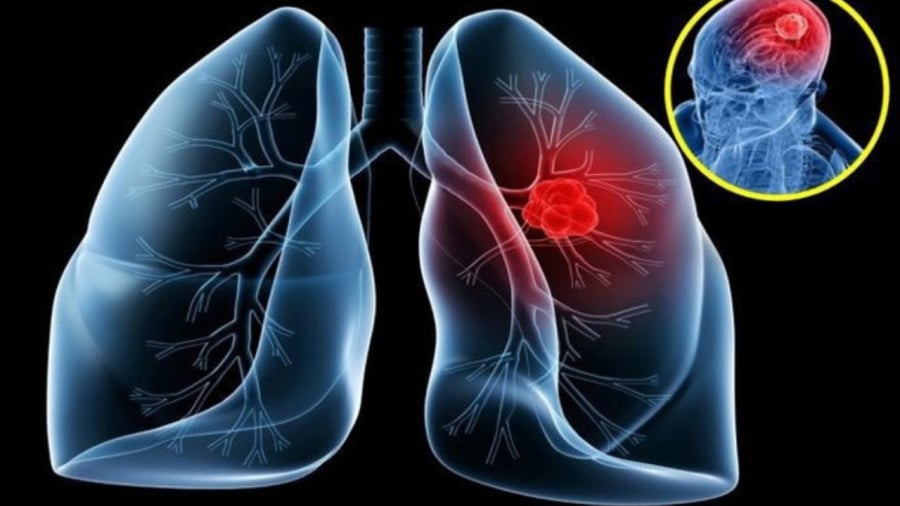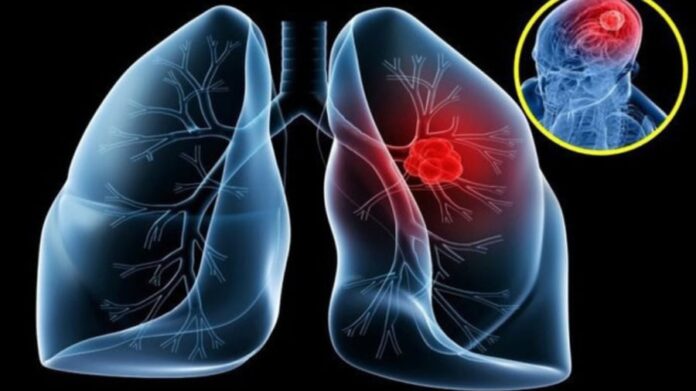Cancer is becoming increasingly prevalent and tends to affect younger individuals. Lung cancer, in particular, is a disease that many people unfortunately develop. It is important to be aware of the following early warning signs of lung cancer.
Persistent Cough
While anyone can experience coughing, a prolonged cough that doesn’t subside after several weeks could indicate lung cancer. Many people attribute this to smoking, but it may also be a sign of a more serious condition. According to a 2018 study, both smoking and the stage of lung cancer were not associated with the severity of coughing in individuals with lung cancer. Therefore, if you experience unusual coughing, it is advisable to consult a doctor promptly.
Shortness of Breath
One of the most noticeable characteristics of lung cancer is difficulty in breathing. Patients may feel breathless, experience chest tightness, and have a sense of not being able to catch their breath, as if there is not enough air to breathe. Lung cancer often results in a narrowing of the airways, leading to shortness of breath.
Coughing up Blood
Coughing up blood is a serious and abnormal health indicator. Even if it is a small amount of blood or blood-tinged mucus, it warrants immediate medical attention. This could be a sign of lung cancer or another lung-related issue, neither of which should be taken lightly.

Chest Pain and Tightness
Chest pain and tightness are clear indications of lung cancer. When the lung tumor puts pressure on the chest or compresses the nerves, individuals may experience chest pain, especially during deep breathing, coughing, or laughing.
Hoarseness
The presence of a lung tumor can significantly affect one’s voice. Individuals with lung cancer may experience hoarseness, with their voice sounding strained, deeper in tone, or softer in volume. The tumor may compress the nerves involved in speech, resulting in hoarseness. However, it is important to note that hoarseness can also be caused by other conditions, such as a cold or laryngitis.
Wheezing
Wheezing is a symptom of various conditions, including bronchospasm, asthma, and airway allergies, but it can also be one of the symptoms of lung cancer.
Fatigue
Any form of cancer can lead to anemia, as cancer cells consume the body’s nutrients, drain its energy, or cause unexplained weight loss or poor appetite. Lung cancer is no exception. If you notice extreme pallor, loss of color in your skin, or significant anemia during blood tests, coupled with other symptoms, it is important to pay attention to your health.
Bone and Muscle Pain
Approximately 70% of cancers metastasize to the bones. Lung cancer that has spread to the bones can cause extreme bone pain, limited mobility, and a sense of discomfort.
Pain in the Hand, Shoulder, and Eye
A specific type of lung cancer (Pancoast Tobias tumor) typically develops at the top of the lung. Apart from affecting the lungs, these tumors can spread to the ribs, vertebrae of the spine, nerves, or blood vessels, resulting in pain in the shoulder, back, or arm. Additionally, it can impact your vision, causing blurred or cloudy vision and discomfort in the eyes.






































